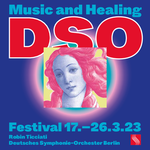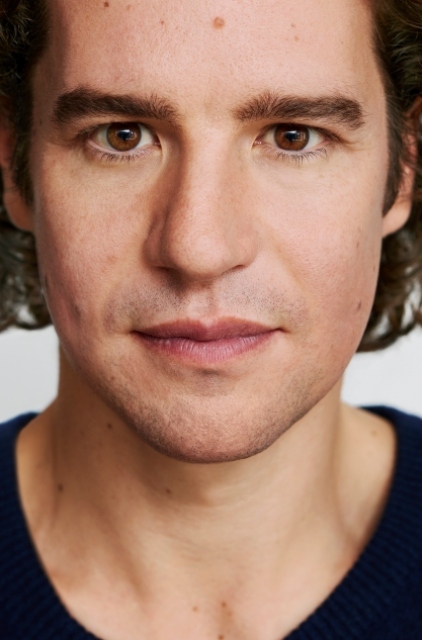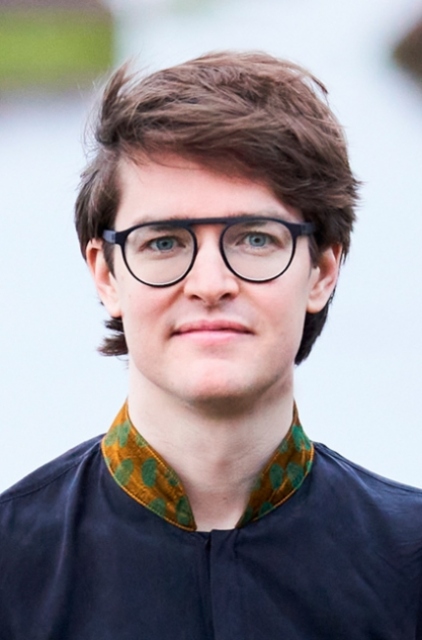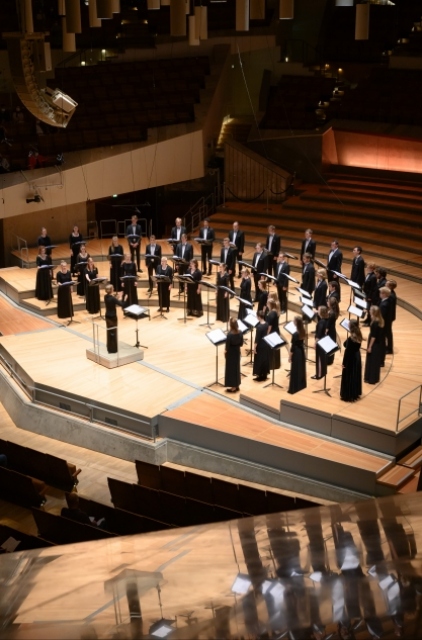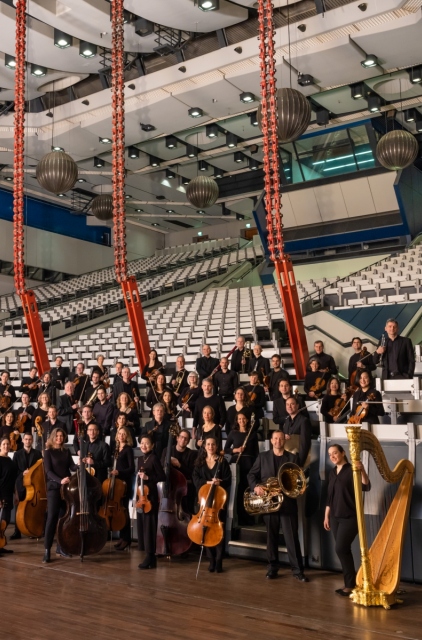Robin Ticciati OBE has been the Music Director of the Deutsches Symphonie-Orchester Berlin (DSO) since the 2017-18 season. In the summer of 2014 he took on the role of Music Director of the Glyndebourne Festival Opera. From 2009 to 2017 he held the position of Principal Conductor of the Scottish Chamber Orchestra (SCO), and from 2010 to 2013 was First Guest Conductor of the Bamberg Symphony.
The young Briton with Italian roots is a regular guest conductor with the London Philharmonic Orchestra, London Symphony Orchestra, Symphonieorchester des Bayerischen Rundfunks, the Budapest Festival Orchestra and the Chamber Orchestra of Europe. In addition, his guest-conducting highlights include the Wiener Philharmoniker, Czech Philharmonic, Swedish Radio Symphony, Royal Concertgebouw Orchestra, Orchestre National de France, Philadelphia Orchestra, Cleveland Orchestra, Gewandhausorchester Leipzig and Staatskapelle Dresden. In 2023, he made his long-awaited debut with the Berliner Philharmoniker.
Tours with the SCO have led Robin Ticciati through Europe and to Asia. In the 2014-15 season, he conducted a Europe tour of the Royal Concertgebouw Orchestra Amsterdam, and in autumn 2016 he toured with the London Philharmonic Orchestra and Anne-Sophie Mutter, performing concerts in Berlin, Munich, Paris and Vienna. In January 2019, he performed with the Chamber Orchestra of Europe “in memoriam Claudio Abbado” in Berlin, Hamburg, Cologne und Salzburg. In the 2019-20 season, he conducted an Asia tour with the DSO consisting of a residency in Tokyo and concerts in China, followed by guest appearances, for instance in the Concertgebouw Amsterdam and in the Elbphilharmonie Hamburg.
As Music Director of the Glyndebourne Festival Opera, Robin Ticciati conducted new productions of Debussy’s ‘Pelléas et Mélisande’, Strauss’s ‘Der Rosenkavalier’ and Mozart’s ‘La finta giardiniera’, in addition to Mozart’s ‘Entführung aus dem Serail’, Dvořák’s ‘Rusalka’, Ethel Smyth’s ‘Les Naufrageurs’ as the world premiere of the original version and a Poulenc evening with ‘La voix humaine’ and ‘Les mamelles de Tirésias’. Furthermore, Robin Ticciati conducted Britten’s ‘Peter Grimes’ at La Scala in Milan, Mozart’s ‘Le nozze di Figaro’ at the Salzburg Festival and Tchaikovsky’s ‘Eugen Onegin’ at the Royal Opera House in London as well as at the Metropolitan Opera in New York, where he also conducted Humperdinck’s ‘Hänsel und Gretel’. In February 2024, he made his debut with the Staatskapelle for a new production of Dvořák’s ‘Rusalka’ at the Staatsoper Unter den Linden in Berlin.
Numerous CD recordings with Robin Ticciati have been released by Linn Records, including Haydn symphonies, two Berlioz albums and a complete recording of Schumann’s and Brahms’s symphonies with the SCO, as well as Berlioz’s ‘L’Enfance du Christ’ with the Swedish Radio Symphony Orchestra. These were all enthusiastically received by the critics and won numerous awards. Also with Linn Records, Robin Ticciati and the DSO presented highly acclaimed recordings of works by Bruckner, Debussy, Duparc, Duruflé, Fauré, Rachmaninoff, and Strauss. Ticciati’s discography also comprises Dvořák’s Symphony No. 9, Bruckner’s Mass in F minor and a Brahms recording with the Bamberger Symphoniker and the Choir of the Bayerischer Rundfunk (Tudor), as well as a number of opera recordings for Opus Arte.
Since taking up his post at the DSO, Robin Ticciati has repeatedly demonstrated his versatility, love of experimentation and flexibility with repertoire ranging from the Renaissance to the present day, as well as with unusual forms of presentation and projects. During the 2020-21 pandemic, he realized a series of elaborate music films with his orchestra, including Strauss’s ‘An Alpine Symphony’ as a musical and philosophical mountain tour with the legendary mountaineer Reinhold Messner, which was presented, among others, on ‘DG Stage’, Deutsche Grammophon’s digital concert hall. In the 2023-24 season, Ticciati and the DSO attracted much attention with a feminist music policy initiative under the motto “No concert without a female composer!”. Robin Ticciati will remain at the head of the orchestra until the end of 2024.
Robin Ticciati was born in London in 1983 and trained first as a violinist, pianist and percussionist. He played in the National Youth Orchestra of Great Britain until turning to conducting at the age of 15. His mentors and patrons include Sir Colin Davis and Sir Simon Rattle. In 2014 he was appointed the ‘Sir Colin Davis Fellow of Conducting’ at the Royal Academy of Music in London. Robin Ticciati was awarded an OBE for services to music in the Queen’s Birthday Honours (2019).
as at: March 2024
